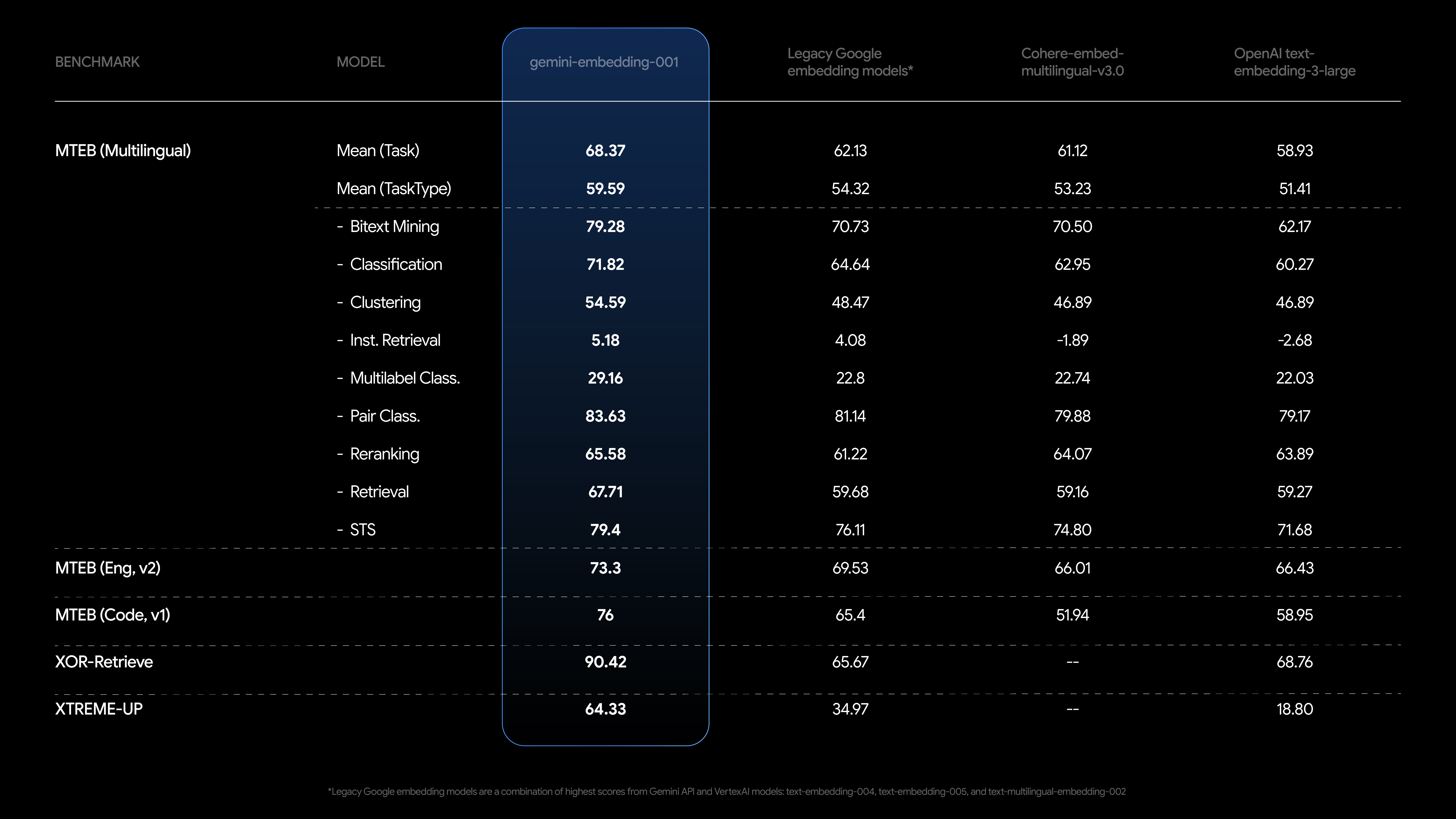
We’re excited to announce that our first Gemini Embedding text model (gemini-embedding-001) is now generally available to developers in the Gemini API and Vertex AI.
This embedding model has consistently held a top spot on the Massive Text Embedding Benchmark (MTEB) Multilingual leaderboard since the experimental launch in March.
Surpassing both our previous text embedding models and external offerings in diverse tasks, from retrieval to classification, gemini-embedding-001 provides a unified cutting edge experience across domains, including science, legal, finance, and coding. Here is how Gemini Embedding compares to other commercially available proprietary models:

More detailed results are available in our technical report*.
An incredibly versatile model, Gemini Embedding supports over 100 languages and has a 2048 maximum input token length.
It also utilizes the Matryoshka Representation Learning (MRL) technique, which allows developers to scale the output dimensions down from the default 3072. This flexibility enables you to optimize for performance and storage costs to fit your specific needs. For the highest quality results, we recommend using 3072, 1536, or 768 output dimensions.
We offer both free and paid tiers in the Gemini API, so you can experiment with gemini-embedding-001 at no cost, or ramp up with significantly higher limits for your production needs.
The Gemini Embedding model is priced at $0.15 per 1M input tokens.
Developers can now access the Gemini Embedding model (gemini-embedding-001) via the Gemini API, which you can start working with for free through Google AI Studio.
It’s compatible with the existing embed_content endpoint.
from google import genai
client = genai.Client()
result = client.models.embed_content(
model="gemini-embedding-001",
contents="What is the meaning of life?"
)
print(result.embeddings)To get started, check out the official developer documentation and cookbooks:
If you are using the experimental gemini-embedding-exp-03-07, you won’t need to re-embed your contents but it will no longer be supported by the Gemini API on August 14, 2025. Legacy models will also be deprecated in the coming months:
We highly recommend migrating your projects to our newest model as early as possible.
We can't wait to see how Gemini Embedding unlocks new use cases that weren’t previously possible. In addition, we will have support for Gemini Embedding in the Batch API soon, which enables asynchronous processing of your data for lower costs.
Keep an eye out for future announcements regarding embedding models with even broader modalities and capabilities!
*MTEB benchmark results in the published paper reflect the experimental version of Gemini Embedding, launched in March 2025.